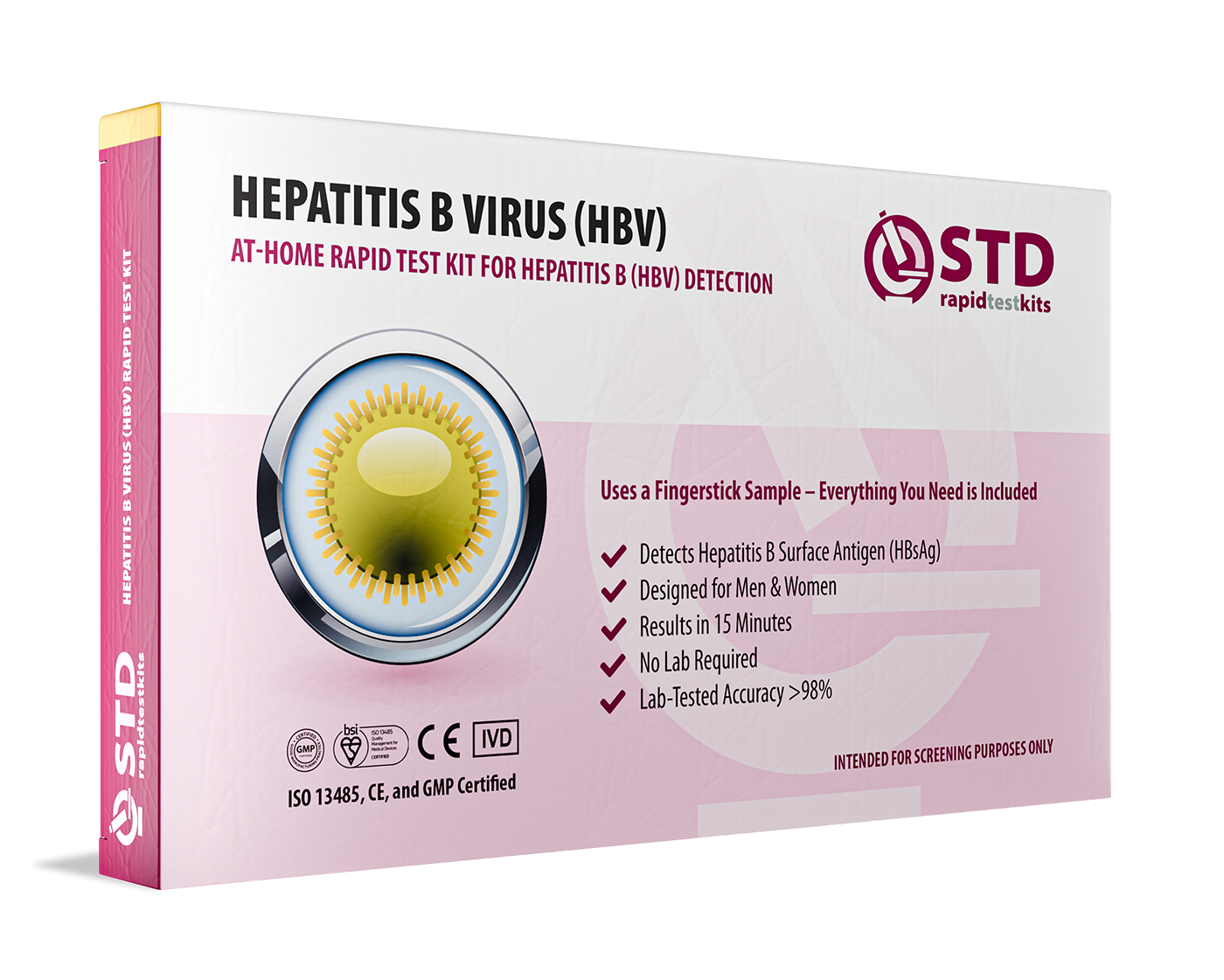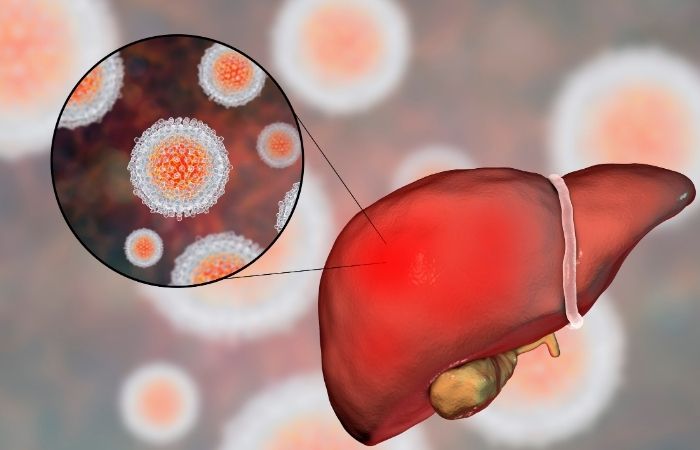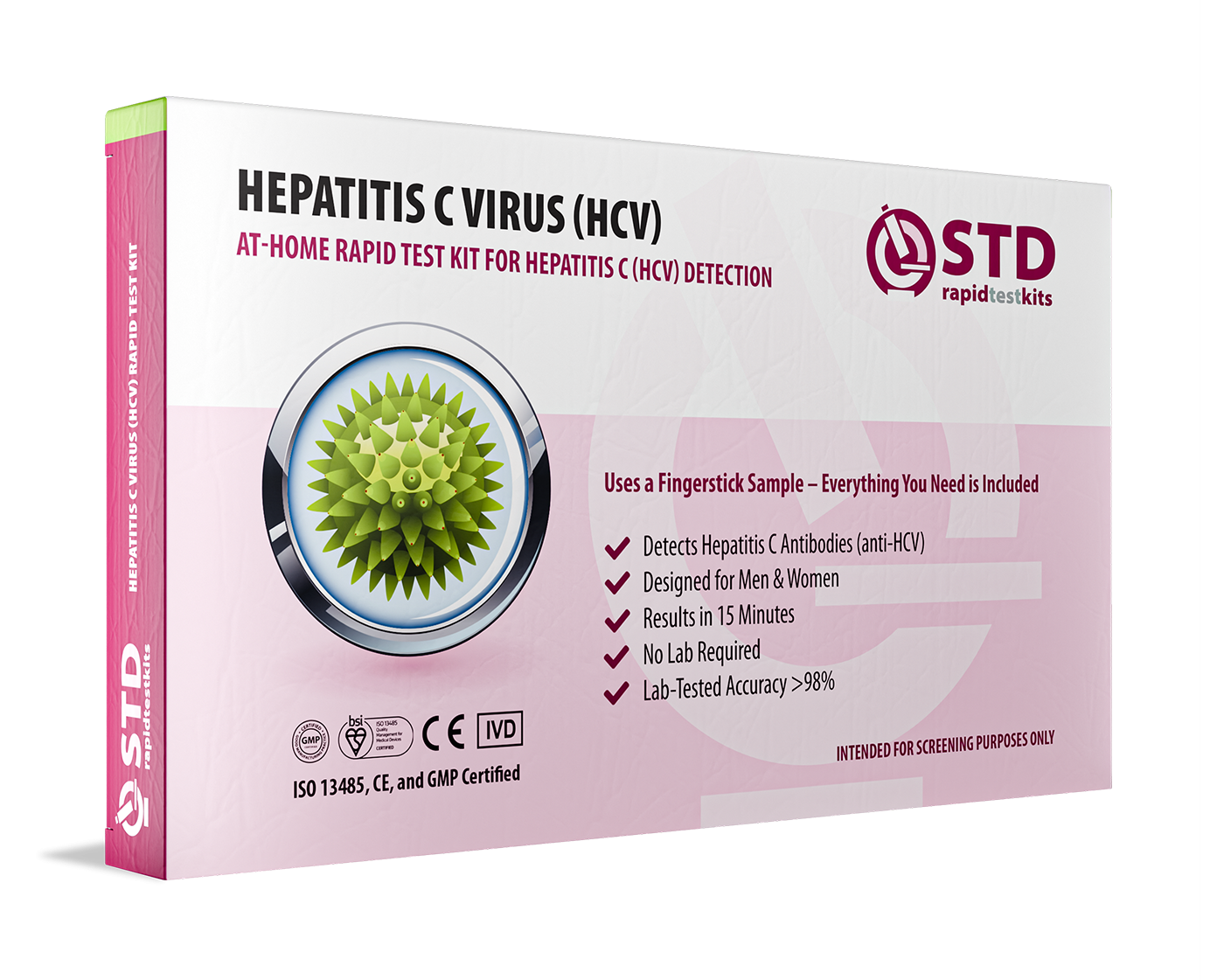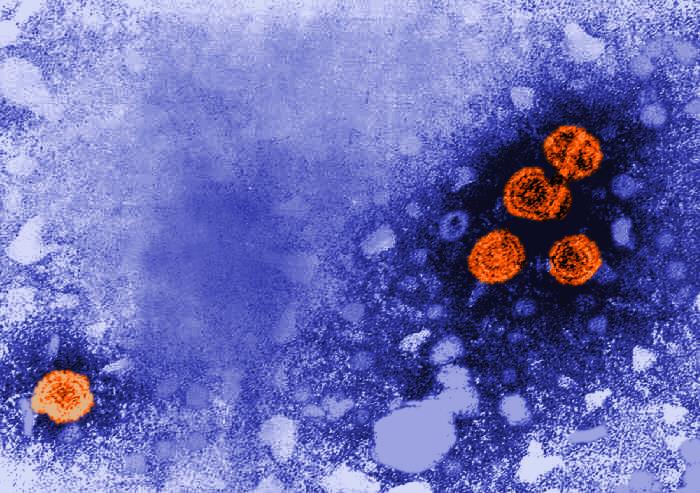Quick Answer: Hepatitis B spreads through vaginal, anal, and oral sex, even without ejaculation. It can also transmit through shared objects, saliva, and micro-cuts during fingering or rimming. Many people show no symptoms.
This Isn’t Just a Flu, It’s a Virus That Hides
Hepatitis B isn’t your typical sexually transmitted infection. It’s a liver virus. It can pass through blood, semen, vaginal fluids, and, yes, saliva. But unlike many STDs, it often mimics the flu at first. Or nothing at all. You might feel tired. You might not feel anything. Meanwhile, your liver is under silent attack.
Here’s the kicker: up to 50% of adults with Hep B don’t know they have it. That means they’re likely still hooking up. Still not using condoms. Still sharing sex toys or flossing too hard before oral, and unknowingly passing it on.
We don’t say this to scare you. We say it to protect you. The real risk isn’t your sexuality or your number of partners. The real risk is assuming you’re too “low-risk” to get tested.

People are also reading: Queer, Unvaccinated, and At Risk: How HPV Hits Gay Men Hardest
“We Didn’t Even Have Sex” , Case Study
Dana, 27, met her hookup at a queer rave in Chicago. “We didn’t have penetrative sex,” she said. “It was oral and a lot of hand stuff. But the next week I got a call from the health department. Someone I’d been with tested positive for Hep B.”
“I didn’t even know you could get Hepatitis B without sex. I didn’t know it was considered an STD.”
Her story isn’t rare. Hepatitis B can pass through saliva during oral. Micro-cuts from rough fingering or dental dams can act as invisible doorways. It’s not about how “safe” it looked. It’s about what you didn’t know.
How It Really Spreads During Hookups
The most common ways Hepatitis B moves through hookups might surprise you. Here's what real sex educators and epidemiologists say:
- Oral sex (giving or receiving): Especially if there are cuts, dental issues, or throat inflammation
- Fingering or hand play: If someone has cuts, hangnails, or bleeding gums, transmission can happen
- Rimming (oral-anal contact): Often ignored, but saliva and microscopic bleeding make this a real route
- Shared sex toys: Without cleaning or condoms between partners, it’s high-risk
- Unprotected anal or vaginal sex: Obvious, but still massively underreported with Hep B
Even if you didn’t “go all the way,” Hepatitis B might still have gone further than you thought.
Why It Spreads So Easily, Even Without Symptoms
Unlike many other STDs, Hepatitis B is uniquely stealthy. You don’t have to be sick to be contagious. In fact, most people transmit the virus before they ever feel a thing.
According to the World Health Organization, Hepatitis B is up to 100 times more infectious than HIV. That’s because it lives longer outside the body and can enter through any mucous membrane or break in the skin, no ejaculation needed.
So what does that mean for hookups?
- No symptoms ≠ no infection: You can carry and spread the virus without knowing it
- No penetration ≠ no risk: Fingering, oral, and even kissing (if there’s blood) can be enough
- No condom ≠ no problem? That false sense of safety is how Hep B keeps moving
Think of it like glitter at a party: it sticks, it spreads, and you don’t know you brought it home until days later.
Check Your STD Status in Minutes
Test at Home with RemediumHepatitis B Test Kit

 For Men & Women
For Men & Women Results in Minutes
Results in Minutes No Lab Needed
No Lab Needed Private & Discreet
Private & DiscreetOrder Now $33.99 $49.00
How Long Is Hepatitis B Contagious?
This is a question people don’t ask until it’s too late. But knowing the answer can protect you, and your partners.
Acute Hepatitis B (the kind you get from a recent exposure) is usually contagious for up to 6 months. During this time, even if you feel fine, your body can pass the virus through sex, saliva, and shared items like razors or toothbrushes.
But here’s the real fear: Chronic Hepatitis B happens when your immune system doesn’t clear the virus. That means you can be contagious for years, or life, unless treated.
Testing is the only way to know which one you have.
“I Thought the Vaccine Meant I Was Good”
Ty, 31, had no idea his childhood Hep B shots had worn off. “I was vaccinated as a baby,” he said. “Didn’t realize I needed a booster until I tested positive after a Pride weekend.”
“I felt fine. I only got tested because my new partner asked. Thank god they did.”
The CDC recommends a full 3-dose vaccine for lifelong protection, but not everyone completes the series. And immunity can fade. That’s why testing is crucial if you’re unsure about your vaccine history.
Don’t assume you’re protected. Know you are.
Testing: The Only Way to Know
If you’ve had any kind of unprotected sex, or even intense makeouts, oral, or shared toys, you owe it to yourself to get tested. The stigma around Hepatitis B keeps people silent, but silence spreads infections.
Testing is quick, affordable, and confidential. And yes, there are at-home STD kits that check for Hep B, too.
Here’s what testing gives you:
- Clarity: You’ll know your status, even if you feel fine
- Control: You can protect future partners, and yourself
- Care: If positive, early treatment can prevent long-term liver damage
Your health isn’t a guessing game. Don’t wait and wonder. Get tested.
Ready to find out? STD Rapid Test Kits has discreet, doctor-trusted kits shipped directly to your door.

People are also reading: Cold Sore After Oral Sex? Here’s How to Tell If It’s Herpes
What Happens If You Test Positive?
First: take a breath. Testing positive for Hepatitis B is not a death sentence. It’s a manageable condition, with treatment, monitoring, and in many cases, complete recovery.
If your test shows a current infection, your provider will do follow-up tests to see whether it’s acute (new and temporary) or chronic (longer-term). Either way, you won’t be left alone.
- Acute infections often clear on their own, but you’ll need monitoring
- Chronic Hep B may require antiviral medications and regular liver checks
- Your sex partners will likely need testing and the vaccine too
It might feel overwhelming, but many people live full, healthy lives after diagnosis. The key is not to hide from it.
Why We Rarely Talk About Hepatitis B, and Why That Has to Change
Let’s be real: we talk about HIV, herpes, even HPV more than Hepatitis B. Why? Because it’s invisible. Because people think it’s “just a liver thing.” Because they don’t realize how sexually transmissible it is, or how common it is among queer, BIPOC, and immigrant communities.
The truth? Over 1 in 3 people worldwide have been exposed to Hep B. Many don’t know it. And hookup culture, where protection is spotty, conversations are rushed, and testing is rare, makes it easy for the virus to spread.
If you’re part of this world, you deserve better info. You deserve care that includes Hep B in the conversation. And you deserve partners who get tested, not just for “the big ones,” but for all of them.
The Sex-Positive Way to Protect Yourself
You don’t have to be celibate. You don’t have to fear intimacy. You don’t have to shut down your hookup life to stay safe from Hepatitis B. You just have to make informed choices, and that starts with testing and vaccination.
Here’s what sex-positive Hep B protection can look like:
- Get the full 3-dose Hep B vaccine
- Use condoms or barriers, especially during oral, anal, or high-friction play
- Clean shared toys between uses or use condoms on them
- Ask your partners about testing. Normalize the convo. Make it hot.
- Test yourself regularly if you’re sexually active with multiple partners
You don’t need to be perfect. You just need to be informed, and empowered.
Check Your STD Status in Minutes
Test at Home with RemediumHepatitis C Test Kit

 For Men & Women
For Men & Women Results in Minutes
Results in Minutes No Lab Needed
No Lab Needed Private & Discreet
Private & DiscreetOrder Now $33.99 $49.00
How Hepatitis B Shows Up in Queer Sex
Let’s talk about the realities of queer sex, and why Hepatitis B often gets missed. Many queer folks assume they’re not at risk because there’s no vaginal penetration. But risk doesn’t care about orientation, it cares about skin, fluids, and silence.
Common practices like rimming, mutual masturbation, or oral without barriers all carry potential for Hep B transmission, especially when toys are shared or there's skin irritation. The assumption that “we don’t do the kind of sex that spreads STDs” leaves many vulnerable.
Queer communities deserve full-spectrum sexual health info, not hetero-centric silence. Ask for Hep B testing. Advocate for your body. Protect your community.
The Myth of “Clean” Hookups
Ever heard someone say, “I’m clean”? Or ask, “Are you clean?” It’s a common script in hookup culture, but it’s loaded with stigma and misinformation. Hepatitis B doesn’t care if someone looks healthy. It doesn’t care if you vibed. And it definitely doesn’t care if they’ve never had an “STD scare.”
Instead of “clean,” let’s talk about tested. Informed. Vaccinated. When we stop moralizing disease, we start reducing it.
If you’re sexually active, especially with new or multiple partners, Hep B testing should be a regular part of your health routine, just like your HIV or chlamydia screens.
When Hookups Become Long-Term Problems
One night. One slip. One hookup. That’s all it takes to end up with a lifelong liver condition if Hepatitis B is involved. The emotional whiplash of “I thought it was casual” turning into chronic illness is real, and deeply under-discussed.
We hear from people who say, “I didn’t even remember their name,” or “It was supposed to be fun.” That moment of vulnerability can lead to years of shame, guilt, or fear, unless we start reframing testing as care, not consequence.
Your sex life doesn’t need to change. Your information does. The more you know, the better you protect what matters, your body, your future, and your peace of mind.

People are also reading: Alaska’s Gonorrhea Crisis: What Symptoms Locals Miss Most
FAQs
1. Can you get Hepatitis B from kissing?
It's rare, but possible if there’s blood involved, like bleeding gums or open sores. Saliva alone isn’t usually enough, but it’s not zero-risk.
2. Is Hepatitis B considered an STD?
Yes. It’s classified as both a liver infection and a sexually transmitted disease, because it can spread through vaginal, anal, and oral sex.
3. Can you catch Hep B from oral sex?
Yes, especially if there are cuts or sores in the mouth or genitals. Oral sex is a real transmission route, not just penetration.
4. What are the symptoms of Hepatitis B?
Many people have no symptoms. When they do occur, they might include fatigue, nausea, joint pain, dark urine, and flu-like symptoms.
5. How soon after exposure can I test for Hepatitis B?
Antigen and antibody tests can usually detect the virus within 1–9 weeks of exposure. Earlier testing may not catch it, repeat testing might be needed.
6. Can I have Hep B and not know it?
Absolutely. Hepatitis B is often silent. Many people carry and spread it for months (or years) without symptoms.
7. How long is Hepatitis B contagious?
Acute infections are usually contagious for up to 6 months. Chronic infections can be contagious for life if untreated.
8. Does the Hep B vaccine work for life?
A full 3-dose series usually offers lifelong protection, but some people may need boosters, especially if they didn’t complete the original shots.
9. How do I bring up Hep B testing with a partner?
Keep it honest and shame-free. Try: “I’ve been thinking about getting tested again, want to do it together?” Normalize it like a health check-in.
10. Can I test for Hepatitis B at home?
Yes. At-home kits like those from STD Rapid Test Kits offer discreet, accurate testing for Hep B and other STDs.
You Deserve Answers, Not Assumptions
If you’ve read this far, chances are you’ve either had a scare, a question, or a moment of “could that have been me?” Good. That means you care about your body, and your partners. That means you’re ready to stop guessing and start knowing.
Whether your last hookup was one night or one month ago, it’s not too late. Testing isn’t a punishment, it’s protection. For you. For the people you care about. For the future you want to live in.
Don’t wait and wonder, get the clarity you deserve. This at-home combo test kit checks for the most common STDs discreetly and quickly.
Sources
2. Hepatitis B Fact Sheet – WHO (global burden, perinatal/horizontal transmission, prevalence)
3. Hepatitis B – StatPearls (risks: cirrhosis, hepatocellular carcinoma, chronic progression)
5. Hepatitis B Basics – HHS (risk of mother-to-child transmission, chronic infection outcomes)










